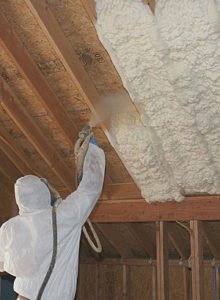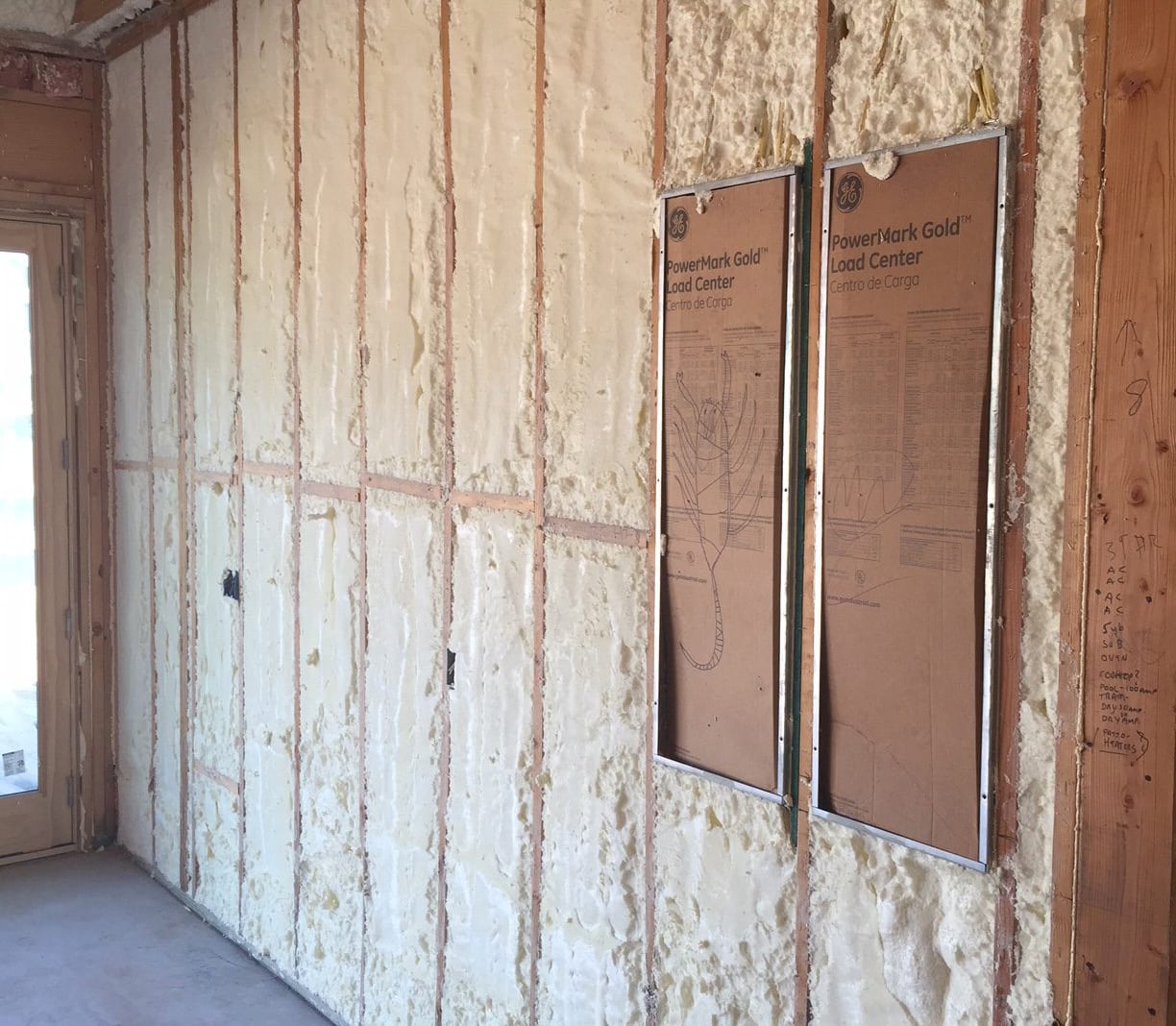At Sterling Custom Homes we are constantly researching new products and product installation techniques to provide the most value to our clients. The introduction of spray foam insulation as an option for energy efficiency has been an interesting study for us. Here’s what we’ve learned over the years:
 Made from polyurethane, spray foam insulation reduces air leakage better than any other type of insulation. It fills the nooks and crannies of unusually shaped building cavities easily and it doesn’t have the tendency to settle over time like batt or blown-in blanket insulation.
Made from polyurethane, spray foam insulation reduces air leakage better than any other type of insulation. It fills the nooks and crannies of unusually shaped building cavities easily and it doesn’t have the tendency to settle over time like batt or blown-in blanket insulation.
There are two main types of spray foam: open –cell spray foam, which has a density of about 1⁄2 lb. per cu. ft.; and closed-cell spray foam, which has a density of about 2 lb. per cu. ft.
The two ingredients used to make spray foam—conventionally called the “A” and “B” components—are mixed on site using special equipment mounted in a trailer or truck. Heated hoses convey the chemicals to a mixing gun that sprays the chemicals on the surfaces to be insulated. An exothermic chemical reaction begins as soon as the chemicals are mixed; the liquid mixture foams, expands, and eventually hardens.
In the Austin, Texas climate, we choose to predominantly use the open-cell product. It provides an R value of 3.5/inch and nearly eliminates air infiltration. Open-cell foams use water or carbon dioxide as the blowing agent. Some open-cell foams are made in part from bio-based raw materials such as soybean oils—in place of a portion of the petrochemicals. The blowing agent for closed-cell foam insulation is hydrofluorocarbons (HFCs), which is harmful to the environment.
Proper installation is a key component to the effectiveness of the insulation envelope. We take care to seal off “California corners”, open corner cavities that left untreated can diminish the effectiveness of the insulation package. Another weak link in the insulation chain is the space behind a tub enclosure (if adjoined to an exterior wall), which many builders fail to address.
For more insight on spray foam insulation and other building science topics, or to arrange a free, no-obligation initial consultation, please call us at (512) 263-2214.
Credit: www.finehomebuilding.com

